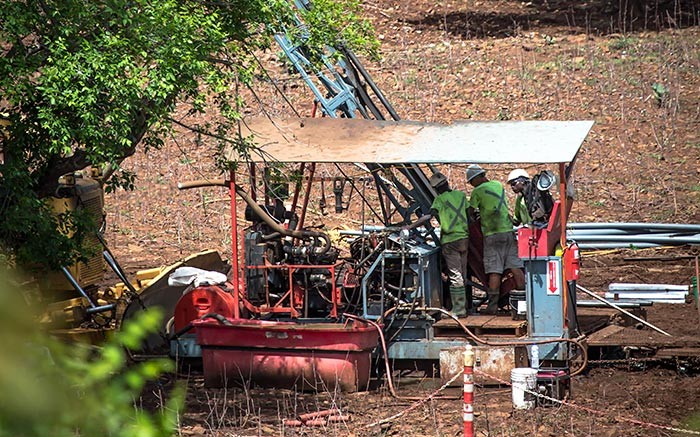Violent protests in Burkina Faso that forced strongman Blaise Compaoré to resign his presidency of that country in November after ruling for 27 years was just one of the uncertainties Roxgold (TSXV: ROG; US-OTC: ROGFF) faced in advancing its 100%-owned Yaramoko gold project there late last year.
The other was Credit Suisse’s move in late December against a previously committed US$37.5 million in project finance, after the Swiss bank’s mid-2014 decision to leave the commodities trading business after posting a huge loss in the second quarter — its biggest quarterly loss since 2008.
But things took a turn for the better for Roxgold in January.
Burkina Faso’s interim government under current president Michel Kafando (the country’s former ambassador to the United Nations from 1998 to 2011) has approved the final permit and formalized that approval in a mining decree signed on Jan. 30 by himself, the prime minister, and the ministers of Mines, Finance and Environment.
The previous government’s Council of Ministers had approved the issuance of the Exploitation (mining) permit, which Roxgold announced on Nov. 4, but it was unclear whether the new interim government would follow the previous government’s lead. That uncertainty was erased when the new Council of Ministers under the interim government confirmed that the approval of the permit by the previous Council was indeed valid. (Presidential elections are scheduled for October 2015.)
At press time on Feb. 11, Roxgold has just lined up BNP Paribas to fill Credit Suisse’s shoes as a lender. BNP, in partnership with Société Générale, will now provide the senior project debt facility of US$75 million, with a hedging component of up to 65,000 oz. gold, or 8.5% of Yaramoko’s current reserves.
In an interview in late January,Roxgold’s president and CEO John Dorward noted that the company still had US$40 million in cash, given Société Générale’s reconfirmation in late December of its commitment to provide US$37.5 million of the original US$75-million debt facility.
“We were caught in the crossfire a little bit,” Dorward admitted regarding Credit Suisse backing out as a lender. “But I’ve learned over the years you can’t rely on one horse in these races.
“We’ve had a few bumps and twists in the road,” he continued. “But we’re well cashed up … which allows us to start our early works. We can do bulk earthworks, start construction of our permanent camp, start on our power line to connect to the grid, and start our box cut for the underground mine.”
Next up at Yaramoko is construction of the plant and underground development. Dorward forecast that construction will take a year, with production kicking off in the first quarter of 2016.
News of Yaramoko’s fully permitted status sent the company’s shares up 11%, or 7¢, to 69¢ apiece on Jan. 30. The company last traded at 66¢ per share within a 52-week range of 39¢ to 93¢ per share.
David Sadowski of Raymond James in Vancouver has a one-year target price of $1 per share and wrote in a research note that while getting the mining decree was expected, “it is nevertheless a critical de-risking step,” and recommended that investors “bolster their positions” in Roxgold.
The analyst models Yaramoko “as a nine-year, high-grade, underground operation with life-of-mine gold production averaging 108,000 oz. a year at cash costs of US$550 per oz.” Including royalties, all-in-sustaining costs are US$680 per oz.


Be the first to comment on "Roxgold lands final permit at Yaramoko"